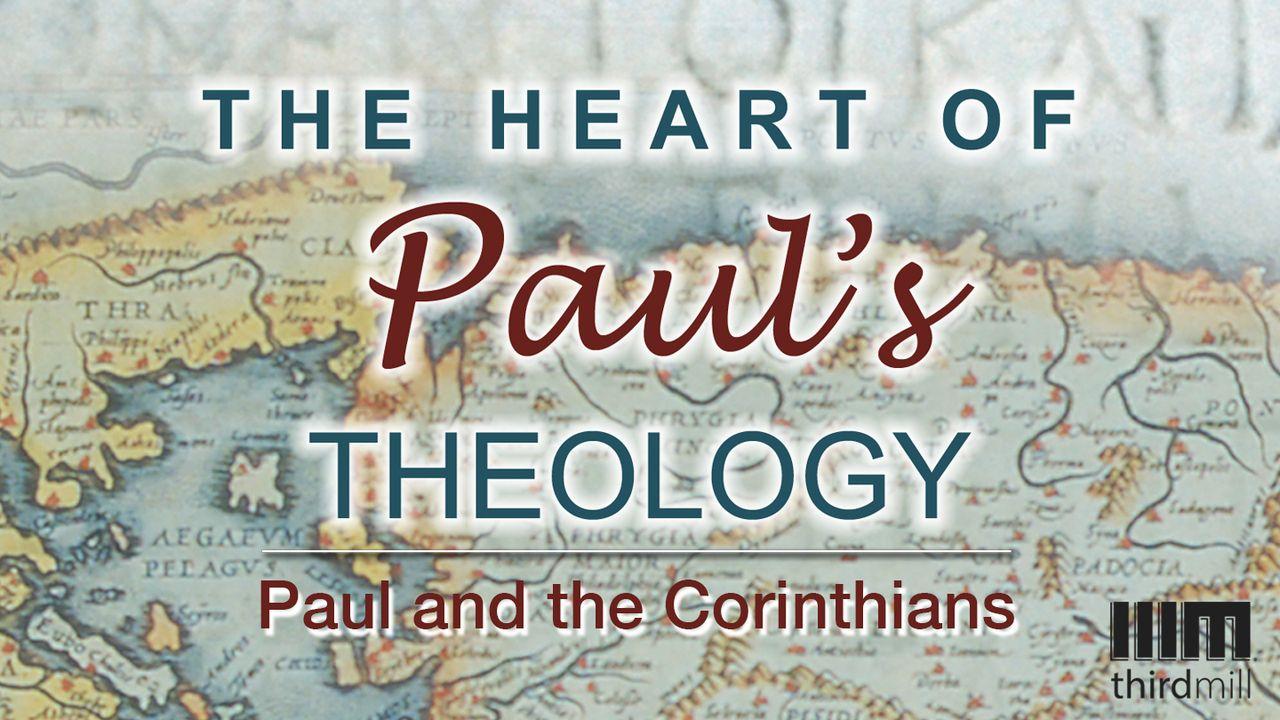The Heart Of Paul’s Theology: Paul and the CorinthiansSample

Faith in Christ as Savior: 2 Corinthians 5:15-17
The Corinthians also failed to exalt Christ by devaluing his role as Savior. Specifically, they overlooked the fact that only through union with Christ do believers receive the blessings of the age to come, including spiritual gifts and honor. Through union with Christ, believers share in Christ’s identity and merit. And because of this, God looks upon them as if they were Christ Himself so that He grants them the status, honor and gifts they enjoy in the church.
But in the minds of many Corinthians, gifts and honor were earned by individual believers. They thought that if a Christian had influence and status, it was because that person deserved these things. And if a believer lacked such earthly prominence, it was because he or she was an inferior Christian.
So, Paul responded to their error by emphasizing another aspect of his eschatology that highlighted the importance of Christ, namely the doctrine of the union between Christ and believers. Consider the way Paul made his case in 2 Corinthians 5:15-17:
[Christ] died on behalf of all, in order that those who live would no longer live for themselves, but for him who died on their behalf and was raised again. Therefore, we no longer know anyone according to the flesh… If anyone is in Christ, there is a new creation. The old things are gone; behold, new things have come.
Paul insisted that believers not evaluate themselves or others according to fleshly or worldly standards. Rather, he wanted them to view all believers as people who are united to Christ, and to show one another the honor and love that they would show to the Lord himself. In fact, Paul brought up this line of reasoning again and again in his letters to the Corinthians. Consider his counsel on this matter in 1 Corinthians 8:11-12:
For the weak one is destroyed by your knowledge, the brother for whom Christ died. When you sin against your brother and strike his conscience, you sin against Christ.
Paul taught that because believers are united to Christ, to sin against a believer is to sin against Christ. And he raised the same kind of argument when he instructed the privileged not to shame the poor during the Lord’s Supper. In 1 Corinthians 11:24-27 he wrote:
[Jesus] said, “This is my body, which is for you. Do this in memory of me… This cup is the new covenant in my blood; do this … in memory of me” … Therefore whoever eats the bread or drinks the cup of the Lord in an unworthy manner shall be guilty of the body and the blood of the Lord.
Paul reminded the Corinthians that Jesus had given himself for all of them, not just for the wealthy and powerful. And he reminded them that it was only through Christ, whom all believers possess equally, that they received the blessings of the age to come. Finally, he made the point that to participate in the Supper in an unworthy manner, that is, to mistreat the poor or other believers during the Supper, was to sin against Jesus Himself.
Throughout his letters to the Corinthians, Paul continually pointed to union with Christ as a basis for honoring, valuing and ministering to other believers. He did this in 1 Corinthians 12:12 when he wrote that believers rely on one another in the same way that parts of the human body do. He did it again in 2 Corinthians 1:5 when he encouraged believers that they would share in Christ’s comfort. Time would fail us if we mentioned every way that Paul expounded upon these ideas in his letters to the church in Corinth, so we will have to be content with summarizing his thinking as follows: Believers participate in the blessings of the age to come only through union with Christ; when we recognize this, we can give proper glory to Christ and avoid many sins rooted in arrogance.
Scripture
About this Plan

This reading plan explores the background to Paul's letters to the Corinthians, examines the structure and content of First and Second Corinthians, and reveals his eschatology.
More
Related plans

Rest in God’s Love: 3 Days of Contemplative Prayer

Financial Discipleship – the Bible on Bribes

Prayers for a Mother's Day: Powerful Prayers for Busy Moms

Healing the Wounds of Rejection

The Radiant Mom: 10 Days to a More Joyful, Christ-Centered Home

Celebrate

The Last Half Hour: When Waiting Becomes Glory

Forgive Them Too??

Pain to Peace: A Man's Path Past Pitfalls
